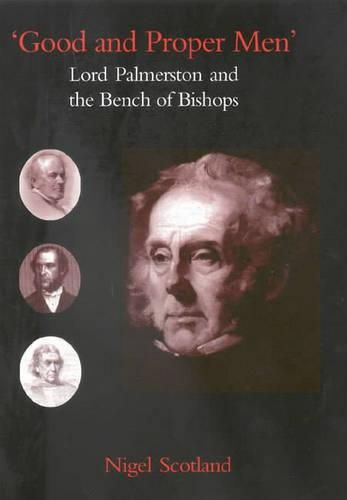Readings Newsletter
Become a Readings Member to make your shopping experience even easier.
Sign in or sign up for free!
You’re not far away from qualifying for FREE standard shipping within Australia
You’ve qualified for FREE standard shipping within Australia
The cart is loading…






In the late-18th and early-19th centuries, dioceses were large and bishops were few and far between. Much of their time was spent, necessarily, in London, attending to Parliamentary business. The result of all this was that bishops were rarley seen in the dioceses and had little time to deal with the problems of industrial society. Prompted by reforming figures such as John Bird Sumner and Samuel Wilberforce, in the early Victorian years, some attempts were made to reform the role and image of the episcopate. No general widespread change was observable, however, until Lord Palmerstone became prime minister in 1855. During his ten years in office he appointed bishops to 19 English sees, and when he died more that half of the bishops in England were his appointees. Significantly, Palmerstone’s prelates came to office with a wealth of parochial experience. They were predominantly pastors of the people, rather than distant and lordly, concerning themselves with reforming their dioceses by revivng the role of Archdeacon and extending the number of Rural Deaneries. These aspects and others, along with their battles over ritualism, their theology and their work in Parliament are examined in detail in this wide-ranging study. Nigel Scotland concludes by arguing that Plamerstone’s prelates brought about a significant change in the English episcopate.
$9.00 standard shipping within Australia
FREE standard shipping within Australia for orders over $100.00
Express & International shipping calculated at checkout
Stock availability can be subject to change without notice. We recommend calling the shop or contacting our online team to check availability of low stock items. Please see our Shopping Online page for more details.
In the late-18th and early-19th centuries, dioceses were large and bishops were few and far between. Much of their time was spent, necessarily, in London, attending to Parliamentary business. The result of all this was that bishops were rarley seen in the dioceses and had little time to deal with the problems of industrial society. Prompted by reforming figures such as John Bird Sumner and Samuel Wilberforce, in the early Victorian years, some attempts were made to reform the role and image of the episcopate. No general widespread change was observable, however, until Lord Palmerstone became prime minister in 1855. During his ten years in office he appointed bishops to 19 English sees, and when he died more that half of the bishops in England were his appointees. Significantly, Palmerstone’s prelates came to office with a wealth of parochial experience. They were predominantly pastors of the people, rather than distant and lordly, concerning themselves with reforming their dioceses by revivng the role of Archdeacon and extending the number of Rural Deaneries. These aspects and others, along with their battles over ritualism, their theology and their work in Parliament are examined in detail in this wide-ranging study. Nigel Scotland concludes by arguing that Plamerstone’s prelates brought about a significant change in the English episcopate.